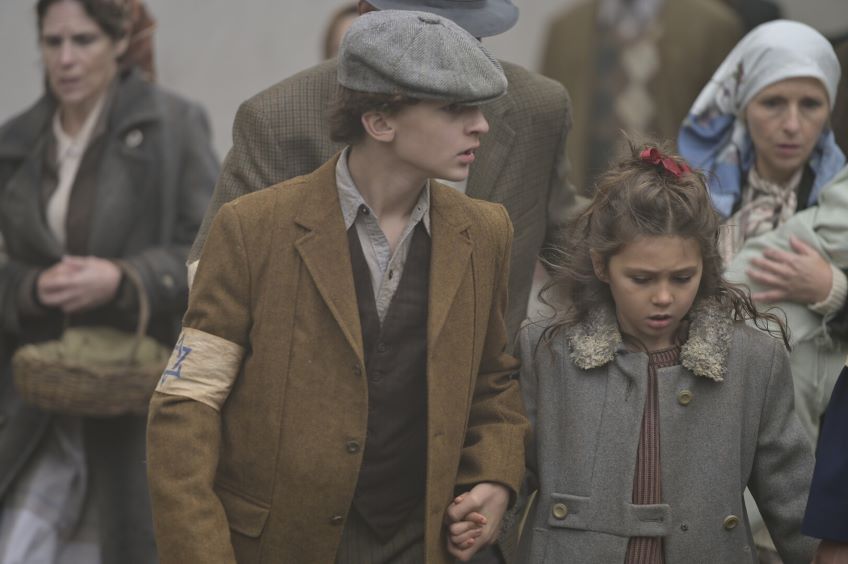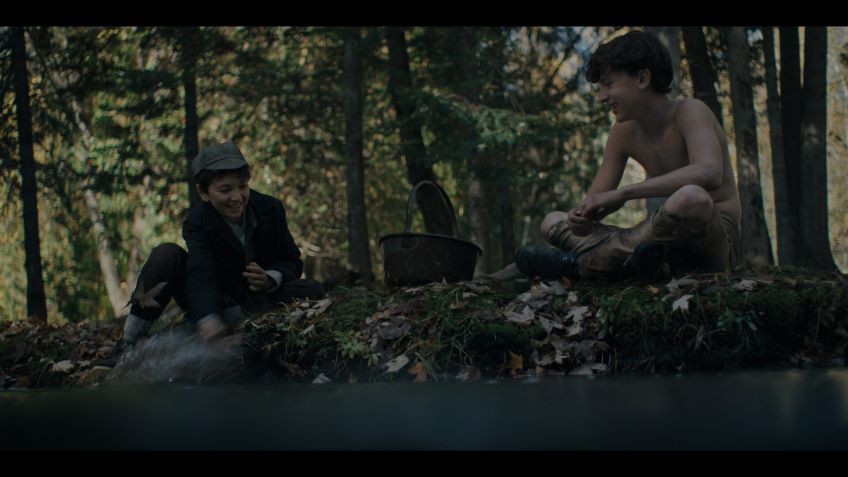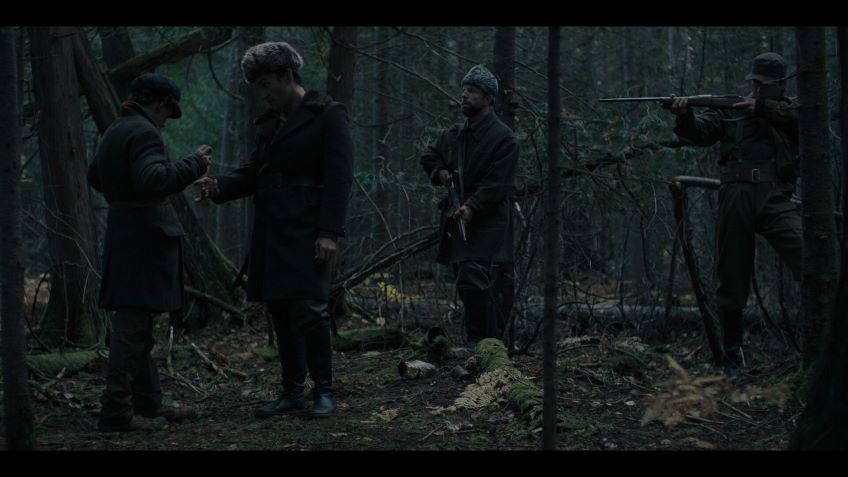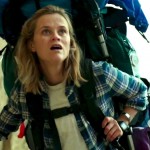Joyce Glasser reviews The Boy in the Woods (May 27, 2024) Cert 12, 101 mins. On digital platforms
There is something offensive and morally questionable about fictitious Holocaust stories: not only because they are fodder for Holocaust deniers but because there are plenty of powerful, true stories that have not yet been told. The story of The Boy in the Woods is not only completely true but was co-written by an eponymous 12-year-old boy who is now a 93-year-old artist living in Canada.
The film’s authenticity is beyond question. Based on Maxwell Smart’s memoir, it is directed by documentary filmmaker Rebecca Snow who met Smart when she made a 2019 feature-length documentary Cheating Hitler: Surviving the Holocaust. Fiction or non-fiction, however, few films about the Holocaust come close to recreating the unimaginably horrific experience of the victims, and, for all its verisimilitude, Rebecca’s feature film debut is not one of them.
Jews, thriving in the local hat and clothing trade, comprised a quarter of the population of the Polish town of Buczacz before 1943. The story of Maxwell (Max) Smart (Jett Klyne) which begins in Buczacz when he was barely thirteen, almost ends there and then. Almost. In April, when the Nazis invade the town, Max’s courageous mother’s (Berkley Silverman) fast thinking enables him to escape her fate, and that of his father and younger sister.

Max eventually finds shelter in the farmhouse of a Polish couple, Jasko (Richard Armitage) and Kasia (Masa Lizdek), who are good people, but are being paid by Max’s aunt, who has temporarily cheated death, but cannot take Max with her. After burning Max’s give-away clothes and giving him new ones, he sleeps in the stable and helps Jasko with the farm, learning skills that will become useful.
The couple have a baby boy and, after a visit from a suspicious police chief (Christopher Heyerdahl), Max’s hosts realise it is too dangerous for the arrangement to continue. Jasko helps the boy find a camouflaged dug-out deep in the woods, gives him survival tips and gifts Max his warm jacket. It is curious, since Jasko is three times Max’s size, that his jacket fits Max so well.
The remainder of the film dramatises Max’s precarious life in the woods, hungry, afraid, lonely and traumatised. He dodges hunters, awol Russian soldiers and is captured by a local man, eager for the reward money for turning in a Jew.
Some comfort, but also responsibility and self-sacrifice, comes from an encounter with Yanek (David Kohlsmith), a younger, timider Jewish boy who provides the protective Max with a kind of family. When the two risk their lives to save the sole survivor of a Jewish massacre in the woods, a hungry, screaming infant girl, their family becomes untenable.

The well-cast Klyne, an experienced child actor since appearing in a baby food commercial in 2009, carries the movie, while Armitage is perfect as the farmer forming an attachment to Max despite himself. Other roles, particularly Kohlsmith’s, are adequate, but fail to make an impression.
Though the drama is credible and there are moments of heartfelt emotion and real tension, with such a contained, true story, Snow could have upped the drama without the risk of sensationalising it or exploiting its subjects. The scene with the sadistic police chief in the kitchen will remind everyone of Christopher Waltz’s interrogation of a farmer hiding a Jewish family in Inglourious Basterds (2009), but has nowhere near that scene’s visceral, nail-biting suspense.
Similarly, though we can imagine a growing boy’s agonising hunger, Snow fails to make us feel that hunger or the desperation of what must have been a constant search for subsistence. Similarly, for a survival story, the passage of time is sketchy. Despite the action beginning a year before Germany’s surrender, we have no idea if Max has been in the woods for a week, a month or eight months and for a frightened boy with only cold, terror and boredom, every day must have seemed like a year.
Yanek suggests finding fish in the river, and while without any equipment that might prove impossible, we do not see them trying, with a club, stones or whatever. While the discovery of the bodies in the woods could have packed a more emotional punch, Max’s hesitative reaction to finding the baby puts the audience in his place as he weighs up her slim chances of survival.
A coda, shot in documentary format, is arguably the most moving scene in the film and prompts us to look back at Max’s remarkable survival story with a new perspective.




